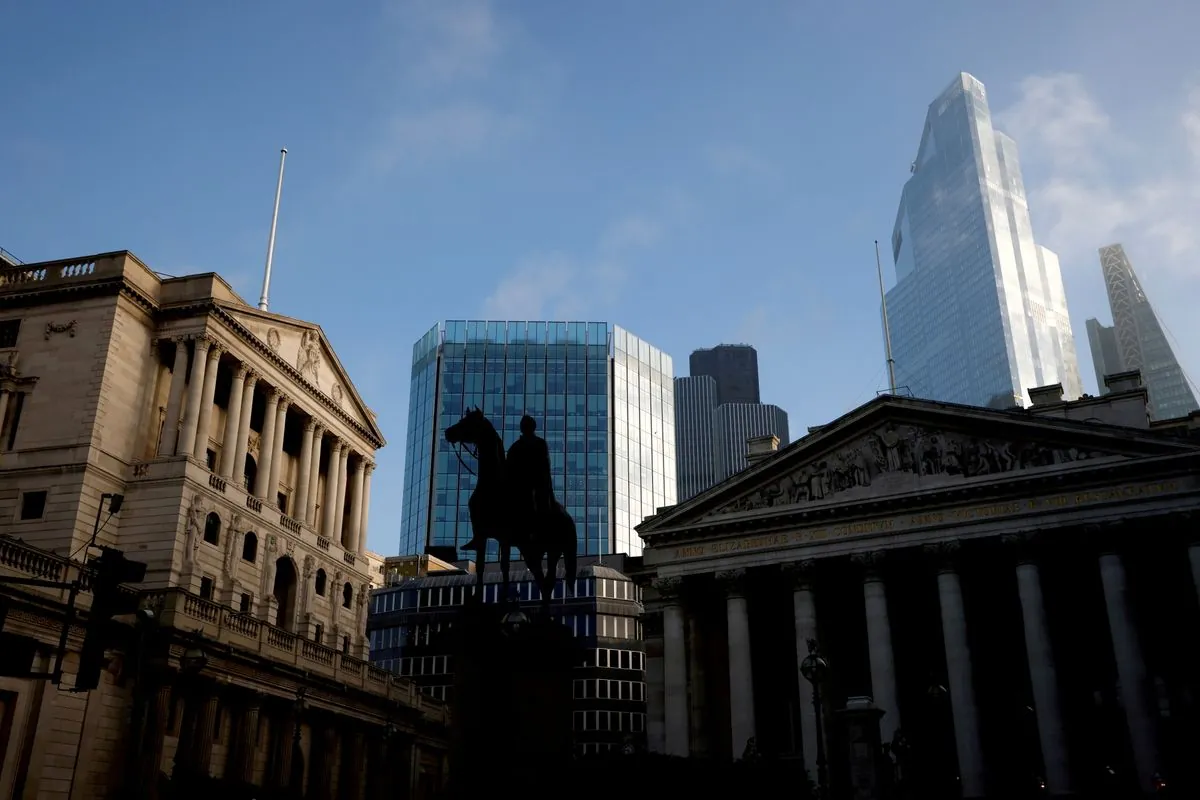UK Banks Brace for Potential Tax Hike in Labour's Budget Plan
British banks intensify lobbying efforts against possible tax increases in the upcoming Labour government budget. Finance Minister Rachel Reeves seeks to address a £22 billion fiscal gap amid high bank profits.

In the realm of British finance, a familiar scenario is unfolding as banks prepare for potential tax increases in the upcoming Labour government budget. Finance Minister Rachel Reeves faces the challenge of addressing a £22 billion fiscal deficit, with the banking sector emerging as a possible target for revenue generation.
The situation draws parallels to the infamous quote attributed to Willie Sutton, the American bank robber who allegedly justified his criminal activities by stating, "because that's where the money is." This sentiment has often resonated with British finance ministers when formulating tax policies.

As Reeves prepares to deliver her first budget on October 30, 2024, the banking sector has intensified its lobbying efforts against potential tax hikes. The focus on banks stems from their recent financial performance, with major institutions like NatWest, Lloyds Banking Group, HSBC, and Barclays reporting an average return on tangible equity of 14% in 2023, surpassing the estimated 10% cost of equity.
The current economic landscape has contributed to this profitability, with high central bank interest rates boosting bank income. However, this prosperity comes at a time when the Bank of England, funded by public resources, is experiencing losses due to the high rates paid to lenders on their reserves.
Several options for increasing tax revenue from banks are under consideration:
- A windfall tax, similar to the one-off 2.5% levy introduced by Margaret Thatcher's government in 1981.
- Adjusting the number of bank reserves eligible for central bank interest payments.
- Modifying existing taxes such as the bank levy or the corporation tax surcharge.
The bank levy, introduced by George Osborne in 2011, and the corporation tax surcharge have undergone various changes over the years. Reversing recent cuts to these taxes could potentially raise significant annual revenue, according to estimates from the Trades Union Congress.
However, arguments against increasing bank taxes include:
- The temporary nature of current high profits
- Projected declines in returns on tangible equity
- Low bank valuations suggesting long-term earnings challenges
As Reeves contemplates her options, she must consider whether targeting banks aligns with her goal of finding "broad shoulders" to bear the fiscal burden. The decision will likely be scrutinized for its long-term implications on the banking sector and the broader economy.
"The current high profitability of banks is likely a temporary windfall rather than a justification for permanent tax increases. Any decision to raise taxes on the banking sector should carefully consider the long-term consequences for the industry and the economy as a whole."
In the end, the approach taken by Reeves and the Labour government will reveal whether their tax policy is driven by economic necessity or, as some might argue, a philosophy more akin to Willie Sutton's infamous rationale for bank robbery.


































